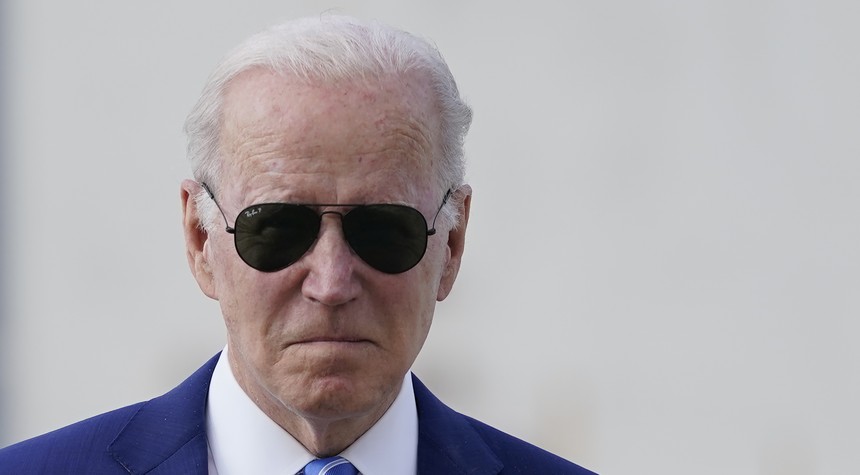5 Reasons We Know the Biden Admin Is Engaged in a Cover-Up

It’s clear to everyone that the Biden administration screwed up big time with its raid on Mar-a-Lago. And yet, on a daily basis, it seems to get worse and worse. There’s an old saying in Washington D.C., that “it’s not the crime, it’s the cover-up” that does the real damage. How true.
There are many theories as to what the true purpose of the raid was, and while we don’t know for sure just yet, one thing we can see clearly is that they are actively engaged in a cover-up, and it’s a very sloppy one at that. Here are five reasons we know there’s a cover-up afoot.
1. Effort to distance key players from the raid
Everything was by the book, right? Nothing untoward about it, right? If that were the case, why is it that the Biden administration not only sought to distance the White House from the raid, but Merrick Garland as well?
White House Press Secretary Karine Jean-Pierre insisted multiple times over the past week that no one in the White House (from Joe Biden all the way down) had any role in the investigation of Trump or knew about the raid. They used the Obama administration’s go-to talking point that they only heard about it through the media. Yeah, right. That was a hard enough pill to swallow, but later, sources in the Department of Justice told the media that even Merrick Garland wasn’t involved. It would have been a lot easier to believe the claim that the White House didn’t know if there hadn’t been an effort to distance the attorney general from the raid as well.
Related: Is This Proof the Mar-a-Lago Raid Was a Fishing Expedition?
2. The changing justification for the raid
When we first heard about the raid, it was quickly established that the FBI was after supposedly classified documents that Trump had taken from the White House in violation of the Presidential Records Act. However, according to Kash Patel, a former top Trump administration official, the documents in question were already declassified by President Trump before he took office.
Oh, and then there’s that not-so-trivial detail that the Presidential Records Act is not a criminal statute. So, why would the FBI raid Mar-a-Lago instead of asking for the documents they seemed to know were there and ask for them back—especially when he’d already been cooperating with other subpoenas? With that narrative blowing up, a new leak claimed that there were top secret documents pertaining to nuclear weapons at Mar-a-Lago. I don’t know who believed that, but the fact that we kept seeing the justification for the raid evolve made it clear the Biden administration was flying blind, trying to cover their tracks in order to justify an unnecessary raid.
3. The false narrative about the scope of the warrant
When Merrick Garland spoke about the raid last week, after admitting to approving the warrant, he said that the Department of Justice “does not take such a decision lightly,” and that where possible, “it is standard practice to seek less intrusive means as an alternative to a search, and to narrowly scope any search that is undertaken.”
The warrant was anything but narrow. Amongst the items FBI agents were directed to seize were “Any government and/or Presidential Records created between January 20, 2017, and January 20, 2021.” So, in other words, any record or document from Trump’s first term. Boy, that doesn’t sound narrow to me. In addition to this, FBI agents seized Trump’s passports, which they had no business taking, and who knows what else?
4. The refusal to release the affidavit
Despite calls by Trump for transparency on this situation, the Department of Justice is actually fighting efforts to release the affidavit that prompted the raid, citing the need to “protect the integrity of an ongoing law enforcement investigation” yad-yada-yada. In order to pretend to be interested in transparency, they claimed they might be okay with releasing a redacted version of the affidavit but that “the redactions necessary to mitigate harms to the integrity of the investigation would be so extensive as to render the remaining unsealed text devoid of meaningful content, and the release of such a redacted version would not serve any public interest.”
How convenient, right?
5. The contradicting narrative about the raid’s urgency
The justification for the raid was based on a sense of urgency for the Department of Justice to obtain the allegedly classified information at Mar-a-Lago, and the raid was necessary to get them back. Yet, according to a story from the Wall Street Journal, sources say that Merrick Garland, who admitted to personally approving the warrant, deliberated for weeks on whether to approve it.
Well, that’s weird. I thought it was urgent. I guess not. Why would sources in the Justice Department tell the Wall Street Journal he deliberated for weeks? My guess: the goal of this leak was a bad attempt to make the raid appear less politicized, and whoever came up with it was too sloppy to realize this contradicted a prior narrative, especially after the claim that there was Top Secret information on nuclear weapons.
No comments:
Post a Comment